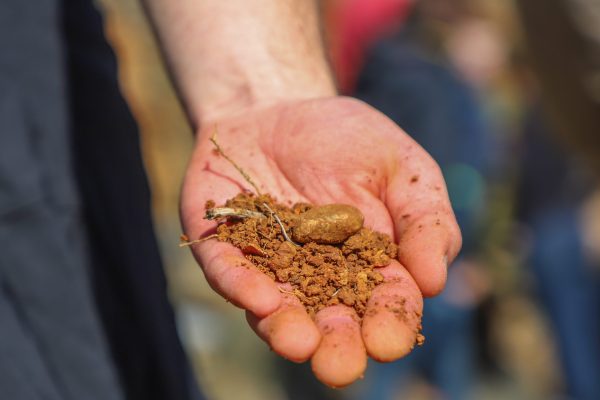Area 2 : Territories, organizations and companies: for a greening of practices
Energy and ecological transition objectives fuel, drive and sometimes constrain the transformation of socio-economic actors’ practices, in their projects, their organizations and their territorial commitments.
For nearly a decade, some of the research conducted at ISIGE has focused on these processes, with a view to greening practices: the aim is to better understand the methods of action (and their challenges) that take into account and contribute to ecological principles on the part of socio-economic actors.

Area
Territories, organizations, and businesses: towards greener practices
The work carried out at ISIGE Mines Paris – PSL analyzes the practices of organizations (local authorities, public institutions, companies, industries) and the various interactions between stakeholders on energy and ecological transition projects. It examines both the theoretical dimensions and representations associated with this greening, and the operational dimensions of their implementation.
This research focus is reflected in involvement in various research projects, particularly partnerships, focusing on how territories function, the practices of various public actors (particularly through various public action tools and mechanisms) and businesses, and the management of sociotechnical objects (sanitation networks, energy sectors, resources).
The work draws on various methods and approaches from the social sciences (sociology of public action, geography, urban planning): semi-structured interviews, participant observation, stakeholder mapping, document analysis.
This work aims to:
- Understand the place and manner in which ecological, environmental, and energy issues are taken into account in various projects (political, territorial, or economic);
- Document existing strategies and practices, as well as the broader systems of action in which they are embedded;
- Identify existing or mobilizable frictions and resources, and thus the conditions necessary for the emergence and implementation of projects and organizations supported (and appropriate) by a group of actors within a territory or sector;
- Inform collective action and support organizations in the implementation of practices that are more respectful of the ecological transition.
Research projects
|
Projects |
Periods | Partners | Funders |
|
2024-2025 |
CSI, ENS Ecotron IdF, Géosciences |
CNRS |
|
|
GE.CO (Gestion Ecologique des COnflits et des contraintes d’usage) |
2024-2026 |
Métropole de Turin, Parc du Queyras, Parco del Monviso… |
Feder Alcotra |
|
HERBE (Hameau Expérimental de Recherche pour une BioEconomie locale ) |
2024-2027 |
CEEP, Univ. Lorraine (ERPI), ENSAD Nancy, AgroParisTech… |
ADEME |
|
2023-2026 |
AgroParisTech, INRAE, Univ. de Lorraine, La Vigotte Lab |
ADEME |
|
|
PREBAT (De la conception à la mise en place : la politique de rénovation des bâtiments à l’épreuve des usage(r)s) (projet TTI.5) |
2023-2025 |
PERSEE |
TTi.5 |
|
PEPR SORRYL (Une Société du réemploi et du recyclage ?) |
2023-2024 |
Pilotage CNRS-ESO et CNRS-LISST |
ANR |
|
ANR ECOMODAM (Écologisation du Modèle économique des Aménageurs) |
2023-2024 |
Co’more, LATTS, CSI, Centre Alexandre Koyré, A&E, ENSA Belleville |
ANR |
|
NMA (Nouveaux Modèles d’Aménagement) |
2022-2023 |
Co’mone, PUCA, Banque des Territoires, Institut CDC pour la Recherche, Agence Nationale pour la Cohésion des Territoires |
Banque des Territoires, CDC |
Thesis
Funding: CGS, TBS, The Transition Institute 1.5 (TTI.5) PhD student: Astrid Ponsot Le Chippey (CSG, Mines Paris-PSL)
Publications
- Bastin, A., Castex, M., Florentin, D. (2024). L’aménagement urbain face aux limites planétaire : une nécessaire écologisation ? Cahier de recherche, Caisse des dépôts, en ligne.
- Beaussier, T., Steinbach, J. (2024), “ Wood or decarbonized concrete ? First insight from a coupling between prospective LCA and Forest sector modelling ”, Society of Environmental Toxicology and Chemistry Europe 34th Annual Meeting, May 5-9, 2024, Sevilla.
- Florentin, D., Bastin, A. et Castex, M. (2024). Les défis pratiques et épistémologiques d’une écologisation de l’aménagement. Géographie, économie, société, Vol. 26(2-3), 325-346. https://doi.org/10.1684/ges.2024.15.
- Perrin, J., Florentin, D., Girard, R., (2024). Tempo and legibility of France’s housing renovation policy: too fast to work?. AESOP. 7-12 july.
- Perrin, J., Florentin, D., Girard, R., (2024). La structuration de la politique de rénovation énergétique des bâtiments : les évolutions des formes de coordination au prisme de la notion de service public. Journée d’étude « Rénover pour la transition. Approches de sciences sociales des marchés de la rénovation énergétique ». 21-22 Mars.
- Denis, J. et Florentin, D. (2022). Des tuyaux qui comptent. Tournant patrimonial et renégociation des relations entre voirie et réseaux d’eau et d’assainissement. Flux, N° 128(2), 32-46. https://doi.org/10.3917/flux1.128.0032.

